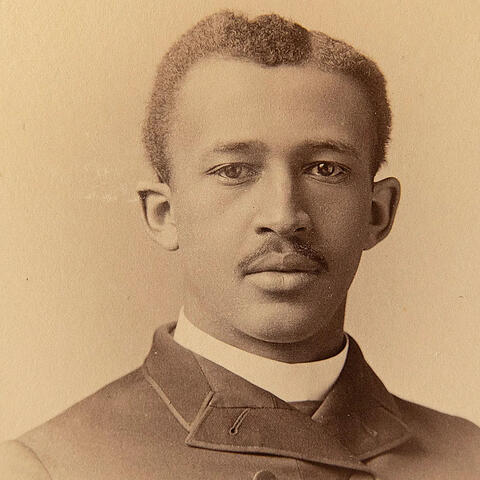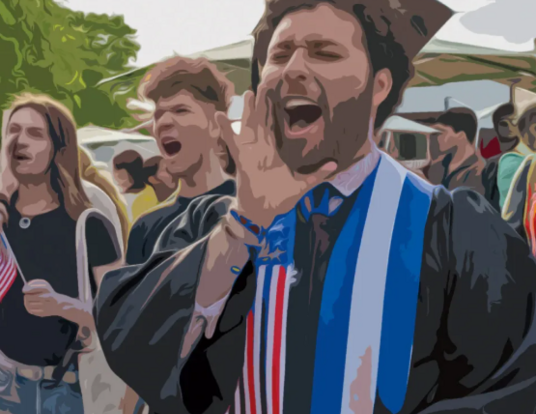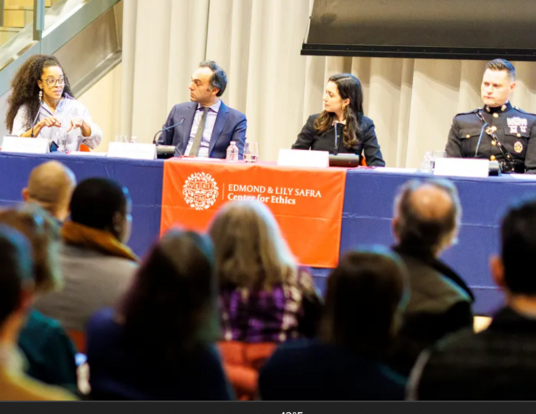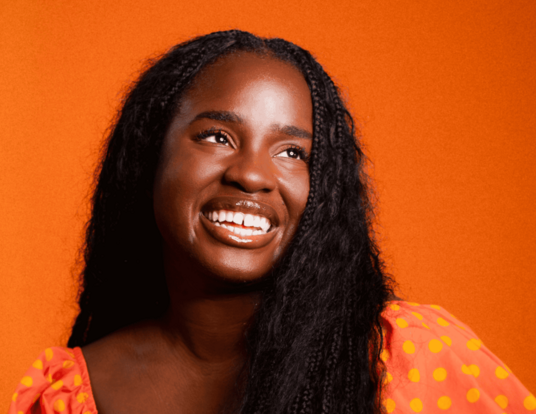Inclusion—with Intention
Welcoming students with diverse identities and backgrounds
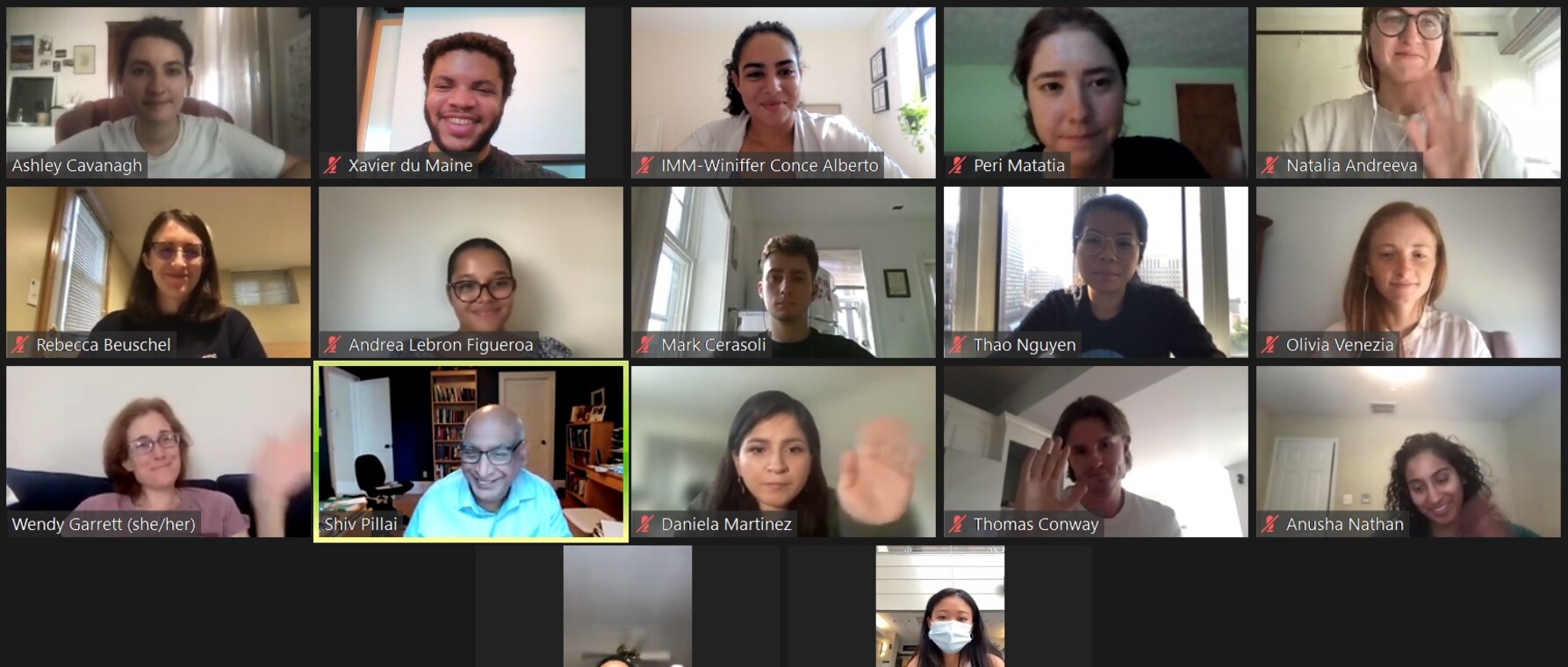
Imagine you’re a first-year PhD student of color at a prestigious university. You were top of your class in college and have accumulated an impressive array of awards and achievements. But so have the other students in your cohort—many of whom are also brilliant and ambitious. You’re surrounded by reminders of the scholars and leaders throughout the institution’s history—most of whom don’t share your background or look like you. You’re a smart, confident person, but it’s all a little intimidating.
In class, you gather your courage and share an insight into the subject matter. The professor barely acknowledges it. Moments later, a white classmate shares more or less the same insight. The professor gives them in-depth feedback and maybe even some praise for their understanding of a complex topic.
One day as you’re leaving class you hear a couple of fellow students talking behind you. Two words pop out from their stream of conversation: “diversity admit.”
These scenarios are all too familiar to students who are Black, Indigenous, or a person of color (BIPOC). They deal with a steady stream of stresses, microaggressions, and, occasionally, overt hostility on top of the demands of doctoral study at leading academic institutions—an experience shared by women, members of the LGBTQ+ community, and those with different abilities, different socioeconomic backgrounds, and different nationalities.
In recent years, however, students in the Systems, Synthetic and Quantitative Biology PhD program and the Biological and Biomedical Sciences (BBS) PhD program have tried to initiate change at the University. The results of the efforts of a group of BIPOC PhD students in BBS is the Culture and Community Workshop a program for incoming students in the life sciences designed to build a foundation of skills and understanding crucial for the creation of a truly inclusive environment. Now an annual part of orientation in the Division of Medical Sciences, the effort is expanding to other programs and departments, helping to make GSAS a more welcoming place for students from all backgrounds and identities.
A Generous Approach
The group that founded Culture and Community included students Adebanjo Adedoja, Kelcee Everette, Alana Van Dervort, Talia Hart, Martha Ordonez, Ayana Henderson, and Daniela Barraza, as well as Xavier du Maine, a diversity and inclusion fellow in the GSAS Office of Diversity and Minority Affairs (ODMA). The group met regularly from January 2019 through the winter and spring of that year—a remarkable commitment of time and energy for busy graduate students. du Maine says that he and the others on the team knew early on which direction they wanted to take their efforts.
“We wanted to focus on the classroom environment,” he says. “We also wanted to address the general climate in the program. That’s where the idea for offering workshops came from.”
The students were open-minded and generous in their approach to the issue of inclusion. They hypothesized that framing community norms at the start of grad school could prevent some of the troubling dynamics and behavior experienced by students of color and help to create a more cohesive class. BBS student Alana Van Dervort says the group’s goal was to enable incoming students to take a more active, aware approach to diversity, inclusion, and belonging (DIB). “We wanted people to think and act more intentionally to cultivate respect, dignity, collaboration, and curiosity, rather than leave it up to the social dynamics that happen in a large class of people,” she says.
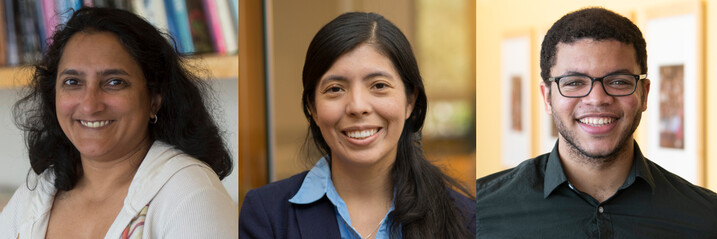
Providing support throughout the process were BBS program director Professor Susan Dymecki, program administrators Anne O'Shea and Danny Gonzalez, Dean for Academic Programs and Diversity Dr. Sheila Thomas, and GSAS Associate Director of Diversity and Minority Affairs Karina Gonzalez Herrera, PhD ’16. Dymecki says that when students feel doubt and fear, it impedes their ability to learn, discover, and be creative. Her goal in working with BBS students of color was to help create an environment where all members of the community could engage in dialogue and realize their full potential—both as scholars and people.
We wanted people to think and act more intentionally to cultivate respect, dignity, collaboration, and curiosity, rather than leave it up to the social dynamics that happen in a class of large people.
–Alana Van Dervort
“Inspired by the ideas and energy of a handful of caring BBS students,” she says, “we sought to contribute to a workshop that would enable incoming classes to create a culture of listening with care and respect by learning from one another, supporting one another, and seeing one another’s shared humanity, individuality, and extraordinary potential. We found that an idea and a few caring voices can indeed make a big difference.”
ODMA’s Gonzalez Herrera says that the meetings were productive because faculty and administrators engaged not only in conversation but also in paying close attention to the students’ concerns.
“Students, administrators, and facilitators came together several times and the students met even more than that to think about what key areas needed to be addressed,” she says. “So, I think the success was in part because the director of the program was willing to listen and think together with the students about what could be done to address the issues that were being raised.”
Sharing the Language of Inclusion
By the summer of 2019, the students were working on a new workshop divided into two modules—one focused on identity and privilege and one on gender and sexuality—for incoming BBS students. They noted that many programs across the University are led by people of color who may have personal experience with DIB issues, but are not necessarily qualified to design a workshop. For that reason, they hired experts and received support from ODMA to design a program that could be institutionalized and later scaled up so that anyone could be trained to lead.
For help with the module on identity and privilege, Van Dervort called on her undergraduate mentor, Dr. Bryan Dewsbury, principal investigator of the Science Education and Society program at the University of Rhode Island. (Dr. Dewsbury is now on the faculty of Florida International University.) For the gender and sexuality module, the students reached out to LGBTQ Outreach and Engagement Director Jessica Halem and Curricular Theme Coordinator Emeline (EJ) Jarvie, both of Harvard Medical School.
The resulting Culture and Community half-day workshop was piloted with around 70 incoming BBS students in August 2019. The founders say that, with only a couple of hours set aside for each module, it was a challenge to know where to focus. They decided to provide participants with a broad overview of DIB as well as concrete skills that first-year students could use with peers.
The incoming students responded enthusiastically to Culture and Community. At the end of the workshop, they committed to making specific changes in their behavior and attitudes. In written feedback, many incoming students said they would make a point of using fellow students’ preferred pronouns and ask when they were unsure. Others promised to connect with those from a different background than their own. One wrote simply that they would try to “be okay with people making mistakes because we are all learning.”
“The conversations in Culture and Community touch on multiple identities—including abilities, nationality, and class—not just race, ethnicity, gender, and sexuality,” says ODMA’s Thomas. “The goal is to think about how different identities impact our experiences. Everyone has something to learn.”
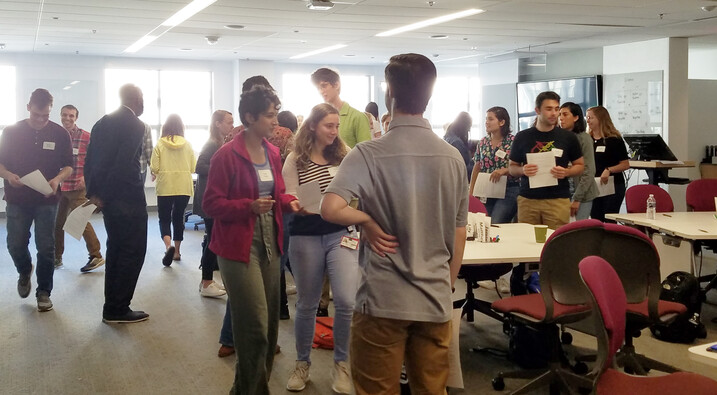
By 2020 and 2021, ODMA’s Thomas and Gonzalez Herrera were leading Culture and Community workshops for faculty and staff and graduate students outside the life sciences. Meanwhile, the students participating in the workshop expanded to include incoming students from the six PhD programs of the Division of Medical Sciences as well as other programs in Harvard Integrated Life Sciences. The group, which was led by du Maine and fellow GSAS Diversity and Inclusion Fellows Lara Roach and José Del Río Pantoja, provided training for more than a dozen graduate student facilitators to lead online workshops. (See sidebar.) They also changed the design of the modules, incorporating activities and real-life case studies that enabled students to develop a better understanding of diverse social identities and their relationship to privilege. Finally, at the end of the workshop, the leaders asked participants to compose a document that envisioned a culture and community of inclusion in their program and laid out concrete steps to make the vision a reality.
“The document says, ‘This is what we are committing ourselves to,’” du Maine explains. “As workshop leaders, we share the language of inclusion and belonging. We provide a framework. Then we pass the torch to the participants and say, ‘What are you going to do about it?’”
Some of the actions that first-year students identified had broader applications: make active choices, not passive ones; learn to be an ally; treat everyone with respect. But Culture and Community’s founders say that often it’s the seemingly simple goals that make the biggest difference for new students of color. Inclusive study groups, for instance, are crucial. Think of first-generation PhD students grappling with a problem set or issue in lab while those who are part of the “in group” call on parents who are faculty at other colleges and universities to walk them through the unwritten rules of how to navigate and succeed in graduate school. Access matters.
As workshop leaders, we share the language of inclusion and belonging. We provide a framework. Then we pass the torch to the participants and say, ‘What are you going to do about it?’
–Xavier du Maine
The founders of Culture and Community are excited about the program’s future. Over 300 members of the Harvard community—mostly students, but with the work of Gonzalez Herrera and Thomas, some faculty, staff, and postdoctoral fellows—have participated in the workshops. Faculty and program directors are getting more involved. There is an appetite for the sessions among other PhD programs as well, particularly in light of the positive response thus far. The long-term goal has been to build capacity among staff across the University to lead the seminars. ODMA’s Thomas and Gonzalez Herrera say that their team is working closely with other GSAS colleagues to build that capacity and to develop additional workshops. But even when Culture and Community is led by GSAS staff, they say the workshop should always be remembered as the brainchild of courageous students of color.
“None of this work would be possible if these students hadn’t had the dedication and commitment to come together,” she says. “They get all the credit. And on behalf of ODMA, we give them our thanks as well.”
Banner and photo courtesy of Xavier du Maine
Get the Latest Updates
Join Our Newsletter
Subscribe to Colloquy Podcast
Simplecast


